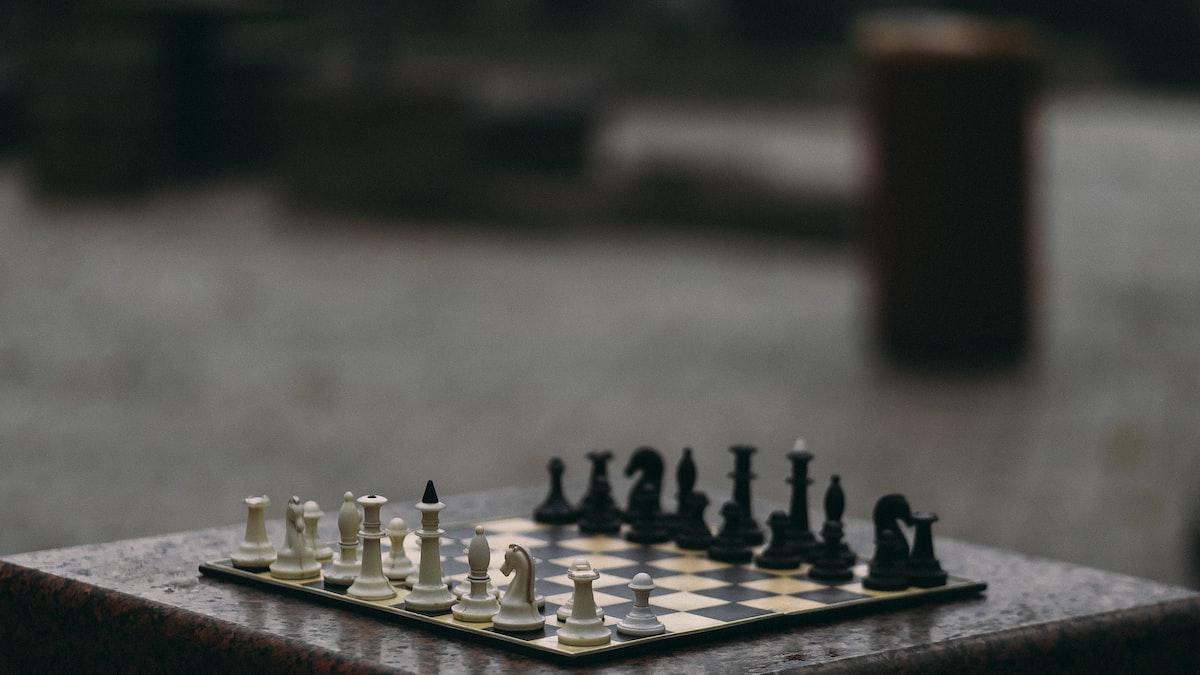Sure, here’s the text for the 1st paragraph:
Chess is a strategic board game that has been played for centuries. It requires players to use their intelligence and creativity to outmaneuver their opponents and achieve victory. But beyond its entertainment value, chess has relevance in human life as well. The game is oftentimes compared to life itself, where the decisions we make determine our success or failure. This is why the saying “How life imitates chess” has become so popular. By learning the strategies and techniques used in chess, we can apply them to our daily lives and improve our decision-making abilities. In this article, we will explore the lessons we can learn from chess and how we can use them to succeed in life.
Importance of Strategy & Planning in Life

Sure, here’s the text for the 2nd paragraph:
One of the most important things we can learn from chess is the importance of strategy and planning. In chess, players must develop a long-term plan that takes into account their strengths and weaknesses, as well as their opponent’s. This requires a deep understanding of the game and an ability to think ahead. Similarly, in life, it’s important to have a clear plan of action that allows us to achieve our goals. Planning ahead can help us anticipate obstacles and make the necessary adjustments to overcome them. Without a solid strategy and plan, we may find ourselves lost and unsure of the direction we should be taking. Strategic thinking is key to achieving success in both chess and life.
Making Informed Decisions: The Move by Move Process

Sure, here’s the text for the 3rd paragraph:
Understanding the move by move process is another valuable lesson we can learn from chess. In chess, each move has a purpose and a consequence that must be carefully considered before making the move. Similarly, in life, every decision we make has consequences that can impact our future. By carefully considering each decision and understanding the consequences of our actions, we can make more informed and rational choices. We must also recognize that, like in chess, our decisions can have ripple effects that can impact our overall life trajectory. Therefore, think carefully and plan in advance before making any move – whether in chess or in life.
Patience and Perseverance: Keys to Success
Sure, here’s the text for the 4th paragraph:
Patience and perseverance are essential traits that both chess players and individuals need to embody in order to achieve success. In chess, patience is required to wait for the right moment to make a move, while perseverance is needed to continue making strong moves even in the face of adversity. Similarly, in life, we must be patient and not rush things. Not everything will happen overnight, and achieving success takes time and effort. It’s important to remember that progress is not always linear and setbacks are a natural part of the process. Perseverance is critical in overcoming obstacles and achieving long-term goals, both in chess and in life. Understanding these traits and learning how to cultivate them can lead to success in all aspects of our lives.
Adaptability: Success in Chess and Life
Sure, here’s the text for the 5th paragraph:
Another important concept we can learn from chess is the ability to adapt to changing circumstances. In chess, players must be able to adjust their strategy on the fly based on their opponents’ moves, as well as changes in the game board. Similarly, in life, unexpected events can happen, and we must be able to adapt and make the necessary adjustments to continue moving forward. This requires a flexible mindset and a willingness to change course when necessary. By being adaptable, we can be better equipped to handle challenges and take advantage of new opportunities as they arise. In both chess and life, adaptability is a key element to success.
Anticipating Consequences: Chess & Life
Sure, here’s the text for the 6th paragraph:
Accepting and anticipating consequences is a core concept in both chess and life. In chess, every player’s move leads to direct consequences, often with some consequences not becoming evident until later in the game. In life, the consequences of even small actions can have a significant impact on our journey. Every decision we make has the power to shape our trajectory in life. Therefore, it’s important to reflect on the potential consequences before making any decision, considering the long-term impact it might have on our future. Additionally, when we inevitably make mistakes, it’s essential to learn from them and use these lessons to make better choices in the future. Developing the ability to recognize and accept the consequences of our actions will lead to better decision-making, both in chess and in life.
Life Lessons from Chess: Blueprint for Success
Sure, here’s the text for the 7th paragraph:
In conclusion, the game of chess teaches us valuable lessons that we can apply in our daily lives. By learning from the strategies and techniques used in chess, we can improve our ability to plan, adapt, and make sound decisions that will lead to success in our personal and professional lives. We learned about the importance of strategy and planning, understanding the move by move process, patience, perseverance, adaptability, and accepting and anticipating consequences in both chess and life. By reflecting on these concepts, we can create a blueprint for our own success, enabling us to focus on our goals and navigate challenges more effectively. Remember that life imitates chess, and we have the power of choice to make every move count.
Common questions about chess and life
Can chess really teach life lessons?
Yes, chess teaches valuable life lessons such as strategy, planning, decision making, patience, perseverance, adaptability, and accepting consequences.
How does understanding the move by move process help in life?
Understanding the consequences of your actions and making informed decisions is essential in both chess and life. By understanding the move by move process, individuals can make more rational and informed decisions in their daily lives.
How important is adaptability in life?
Adaptability is necessary in life as unexpected events can happen, and we must be able to adapt to new situations to continue moving forward. By having a flexible mindset, individuals can handle challenges with ease and take advantage of new opportunities.
Can the concepts of chess really be applied in real life?
Yes, the concepts taught in chess can be applied in real life situations. The strategies and techniques used in chess all have corresponding applications in everyday life, including decision-making, planning, and overcoming obstacles.
Is it necessary to have patience and perseverance to achieve success in life?
Yes, patience and perseverance are essential traits in both chess and life. Progress is not always linear and setbacks are a natural part of the process. By being patient and persevering, individuals can overcome adversity and achieve their goals.
Do you have to be good at chess to learn the lessons taught by it?
No, one does not need to be a skilled chess player to learn valuable lessons from it. Anyone can learn the concepts and apply them in their daily lives regardless of their skill level in the game.